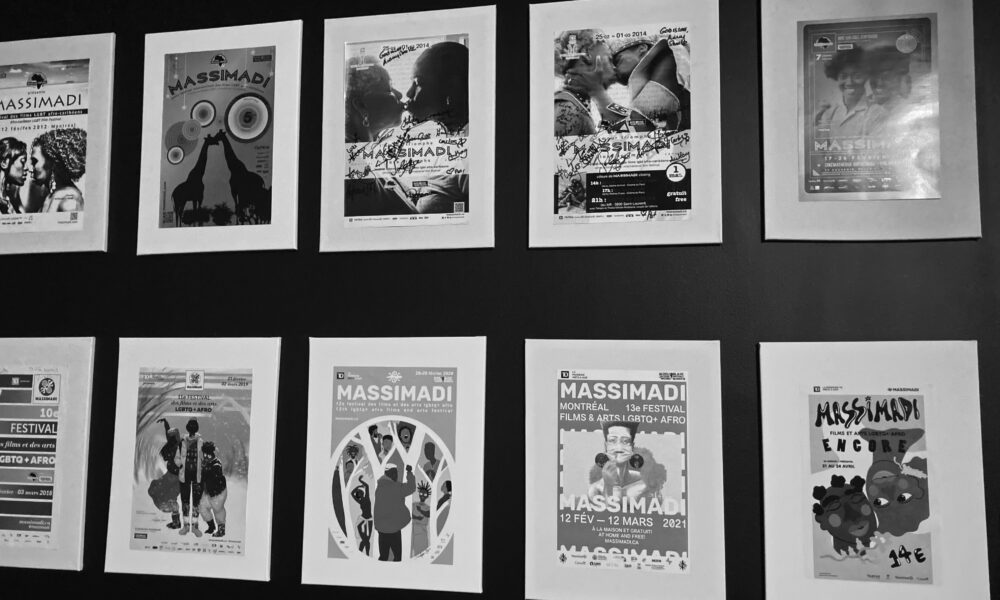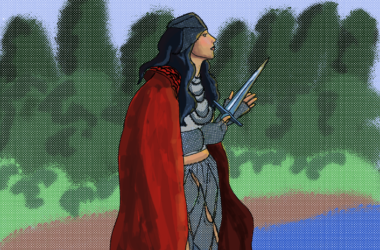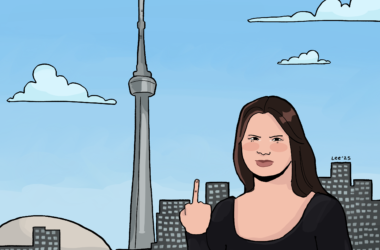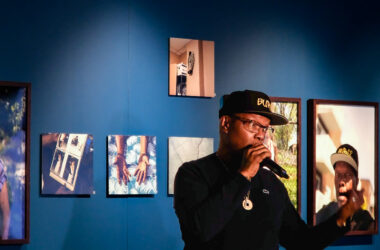The Massimadi Afro LGBTQ+ Arts and Film Festival celebrates its 15th anniversary with an explosion of light, music, and vibrant hues.
Since its inception in 2009 within the classrooms of Université du Québec à Montréal (UQÀM), the Massimadi Foundation has been orchestrating a series of events throughout September. These gatherings encompass parties, panel discussions, captivating photography exhibitions, and compelling film screenings, all aimed at promoting the work of Black queer artists.
On Sept. 15, the organizers kickstarted this year’s festival with a party at the Ausgang Plaza, hosted by drag queen Barbada. At the event, members from the whole Massimadi Foundation, Momentum Project (an initiative for young Afroqueer screenwriters), and from all corners of Montréal, danced, chatted, and celebrated another year of honouring Afroqueer culture.
“This is so important for the Massimadi Foundation because it is the emotion, the future of the Black LGBT community. But it’s not just for the Black queer community, it’s for everybody,” Wanderson Santos, Project Manager for Massimadi, said in an interview with The Tribune.
The Massimadi Festival is one of the few festivals in Quebec dedicated to Black queer culture. Among this year’s events is Identities, skins, and faces—a photographic exploration of Afroqueer Identities, showcased at Daisy Peterson Park. With showings on Sept. 14-17, 22, and 29, the exhibition highlights portraits from Black queer photographers. There are also screenings of Manscaping (2022), a documentary directed by Broderick Fox that chronicles three queer men as they transform the barbershop experience to be more inclusive and accessible. Among those featured in the documentary is Devan Shimoyama, a Black queer artist whose collection Mighty Mighty: The Barbershop Project partnered with the nonprofit organization CulturalDC to build a reflective and social space where one could view his collection while getting a fresh haircut. The documentary’s next showing will be outdoors on Sept. 29 in The Village.
Besides the festivals, the Massimadi Foundation also offers programmes that provide professional opportunities to Montréal’s Black queer artists. This year, Massimadi initiated Momentum, a program to champion and mentor Afroqueer screenwriters, helping them succeed in the broader Canadian filmmaking industry. Over the next six months, eight Black queer screenwriters will participate in classes, workshops, and conferences to build their skills in screenwriting and filmmaking. On Sept. 19, they launched the program with a conference at Studio L’Inis, an event for the selected eight to pitch their ideas to film industry professionals and network with the mentors who will guide them throughout the program. After the success of this year’s cohort, Massimadi intends to implement the program annually.
“Momentum is very important for the writers. They are queer and Black—sometimes inside their communities they don’t feel like they can project themselves. Here, they can do that,” Santos said.
By screening films, showcasing photography, and supporting Black queer artists, Massimadi strives to give Afroqueer people a voice and to show the world that their stories matter.
“We aimed to inspire other individuals from Black communities to assert themselves by showcasing diverse people and characters that reflected their identities and questions,” Laurent Lafontant, President of the Massimadi Foundation, wrote in a message on the Massimadi website.
On Sept. 30, Massimadi will end its festival with a pride parade at the Place du Village—a final flourish after a month of festivities.
The Massimadi Foundation and Festival demonstrates how promoting art from the Afroqueer community helps communicate Black queer artists’ feelings and reality. It encourages people to reflect about these vital perspectives, which challenge homophobia, transphobia, and racism in Montreal.
“We have to be strong,” Santos said. “We have to be proud. Not because we are different, but because we can be the identity we need to be. Everyone has a place, they just need to take it. We can make a change.”









